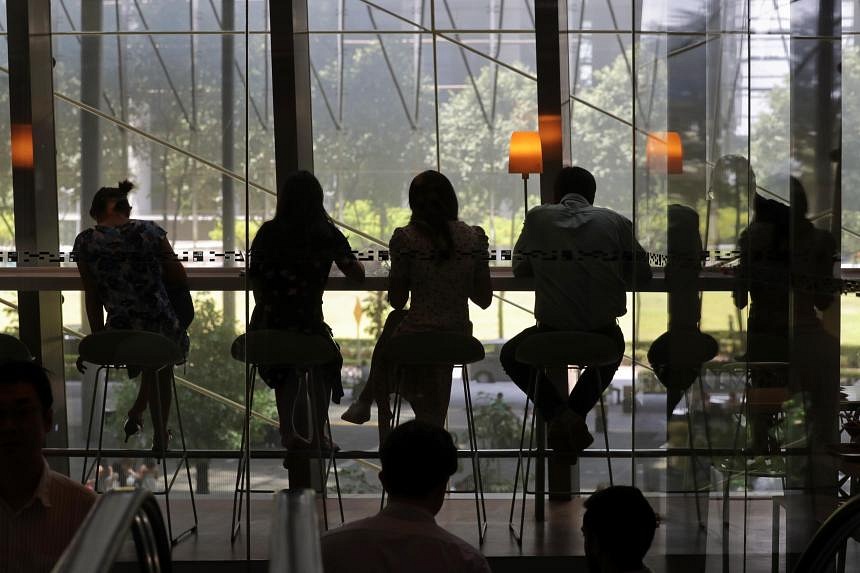SINGAPORE - When it comes to flexible work arrangements in Singapore, it seems that there is a mismatch between what employers believe they are providing, and what employees actually want or experience.
A report released on Tuesday said that 83 per cent of Singapore employers think their workplaces support flexible arrangements, while only 61 per cent of employees feel the same way.
“This shows that employers’ understanding of flexibility isn’t the same as employees’,” said the report by job search platform Indeed.
It added: “It is crucial for organisations to take employees’ preferences into consideration and find ways to offer appropriate flexible arrangements – particularly, for those who deem it essential.”
Retail has the greatest divide between the views of employers and employees, with only 42 per cent of employees believing they have flexibility despite 80 per cent of employers claiming to provide flexible work arrangements.
Perceptions were most aligned in the finance industry, where 73 per cent of employees thought they had flexibility, and 78 per cent of employers felt they offered it.
ManpowerGroup Singapore country manager Linda Teo said the misalignment is because bosses and staff might understand workplace flexibility differently, noting: “Employees see flexibility from their individual perspective, which sometimes can be misaligned from the organisational goals.
“There are occasions where employers design FWAs (flexible work arrangements) without consulting their employees. As a result, the FWAs look good on paper but fail to address the pressing needs of their employees.”
Mr Alvin Goh, executive director at the Singapore Human Resources Institute (SHRI), emphasised the importance of building workplace trust between employers and employees, saying: “This is an ongoing journey as we move towards flexible work arrangements.”
To be presented at Indeed FutureWorks Singapore, an industry event on Aug 31, the study revealed that 85 per cent of employees in Singapore desire flexibility at work, significantly higher than the global average of 66 per cent.
It also found that about a third of employees will consider leaving a job should their flexible work arrangements be revoked.
The study, which was done by data analytics company Valuvox on behalf of Indeed, polled 1,223 employees and 607 employers in June 2023. The workers were aged between 18 and 68 and came from industries such as retail, technology, healthcare, finance and hospitality. The firms included large companies headquartered in Singapore, multinational companies, small and medium-sized companies and start-ups.
The findings showed that the most preferred flexible work arrangement among employees is hybrid work, where workers can spend part of their time in the office and work from home the rest of the time. Flexible hours came in second, followed by a four-day working week, remote work and location flexibility, in that order.
The study also highlighted the gap between what companies offer and the type of flexi-work that employees actually want.
According to its data, Indeed said that a majority of employees do not work in organisations that offer the same flexible arrangements as their preference.
Generally, employees said that flexibility makes them feel productive and provides better work-life balance. The poll also showed that while mental health and well-being are not as greatly affected by flexible arrangements as productivity and work-life balance are, the impact is still considerable.
However, employees said flexibility can cause difficulties in communication, collaboration and team coordination, and they may be expected to work more or end up working longer hours.
Meanwhile, employers reported that the biggest benefit of flexible work is greater staff retention and talent attraction, followed by increased productivity.
On the flip side, employers cited less shared culture between teams and a struggle to manage workload and deadlines as some disadvantages of flexible arrangements.
“It is important for employers and employees to bridge their understanding of FWAs and their respective wants from the arrangement, so that the benefits of FWAs outweigh the costs for both parties,” said Ms Teo.
Similarly, Indeed Singapore strategy and operations lead Karthik Sudhakar said: “Flexible work arrangements can be beneficial for both employers and employees, but it’s important to get alignment on what works best for each party. Employees should be able to take advantage of flexible work without being penalised, and employers should prioritise flexibility to attract and retain talent.”
Ms Teo also noted that companies implementing flexi-work arrangements need to ensure that all employees are treated fairly.
But too many different variations of FWAs could confuse a well-meaning employer as it becomes overwhelming to manage each unique arrangement, she said. “To strike a happy compromise, it is better to have a few broad FWAs for all employees to adopt, and there should be some form of flexibility on a case-by-case basis for unique situations.”
SHRI’s Mr Goh noted that most human resource (HR) processes were developed in a pre-Covid-19, pre-remote working environment, and some should be relooked.
“HR professionals and business leaders must move away from conventional thinking and adopt a growth mindset to redesign work and their rewards and performance system,” he said.


